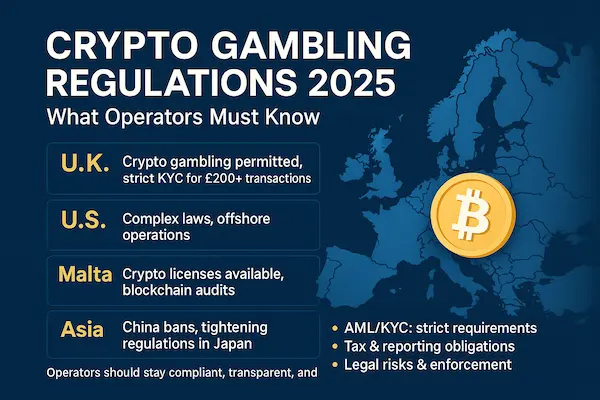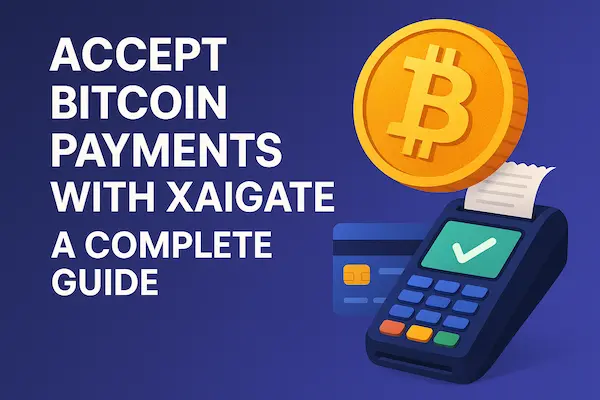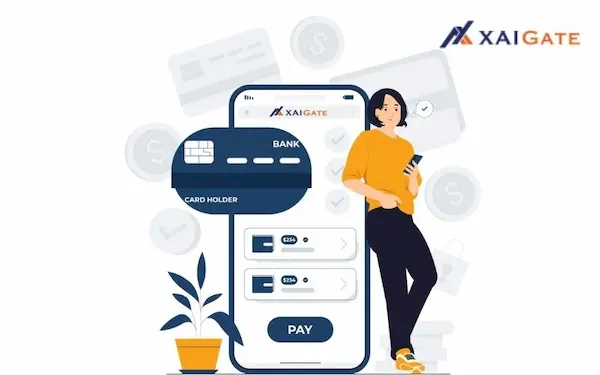The online gambling industry has always been at the forefront of technological innovation, but the integration of cryptocurrencies has accelerated its evolution at an unprecedented pace. What started as a niche payment option has now become a mainstream trend, with thousands of online casinos, sportsbooks, and iGaming platforms adopting crypto as a primary method of transaction. Players are attracted to the anonymity, speed, and convenience of digital assets, while operators benefit from lower transaction fees and global accessibility.
However, this rapid growth has also triggered concerns among regulators. Issues such as fraud prevention, anti-money laundering (AML), taxation, and responsible gambling have risen to the top of government agendas. In 2026, Crypto Gambling Regulations are no longer just theoretical debates—they are shaping into enforceable laws across major jurisdictions. For operators, this means adapting to a more complex, compliance-driven environment where ignorance of regulations is no longer an option. Those who understand and prepare for these changes will thrive, while others may face fines, restrictions, or even forced shutdowns.
Contents
- 1 1. Why Crypto Gambling Regulations Matter in 2026
- 2 2. Key Regulatory Trends in 2026
- 3 3. Regional Breakdown of Crypto Gambling Regulations
- 4 4. Compliance Challenges Operators Face
- 5 5. Opportunities for Compliant Operators
- 6 6. How Operators Can Stay Ahead
- 7 FAQs on Crypto Gambling Regulations 2026
- 8 Final Insights: Crypto Gambling Regulations and the Road Ahead
1. Why Crypto Gambling Regulations Matter in 2026
The importance of Crypto Gambling Regulations cannot be overstated in today’s global market. As cryptocurrencies become more deeply integrated into online betting, regulators are seeking to create balance: allowing innovation to flourish while ensuring player safety and financial integrity. Without strong regulatory frameworks, the industry risks being viewed as a “wild west” plagued by scams, money laundering, and unfair practices.
For players, regulations bring reassurance. They guarantee that the platform they are using is licensed, secure, and transparent. This builds confidence, encourages long-term engagement, and reduces the likelihood of disputes. For operators, compliance is not just about avoiding penalties—it is a business advantage. Platforms that adhere to the latest standards often attract higher-quality players, build stronger relationships with payment providers, and gain recognition from investors who prefer regulated environments.
Moreover, regulators are not only focused on risks; they are also enabling growth. By creating clear rules around licensing, KYC/AML checks, and tax obligations, governments are providing a roadmap that can legitimize the entire sector. In 2026, the operators who embrace Crypto Gambling Regulations will find themselves positioned as trusted leaders, while non-compliant competitors may struggle to survive in an increasingly regulated landscape.
Table 1: Regional Overview of Crypto Gambling Regulations 2026
| Region | Regulatory Status 2026 | Key Focus Areas | Opportunities for Operators |
|---|---|---|---|
| European Union | MiCA framework applied to crypto gambling | Licensing, AML, responsible play | High trust & wide market |
| United States | State-level pilot programs, no federal framework | Licensing, taxation | First-mover advantage |
| Asia-Pacific | Rapid adoption, hybrid licensing in Japan & PH | AML, compliance frameworks | Massive growth potential |
| Middle East & Africa | Conservative, slow adoption, exceptions in UAE & SA | Strict gambling bans, AML checks | Long-term emerging markets |
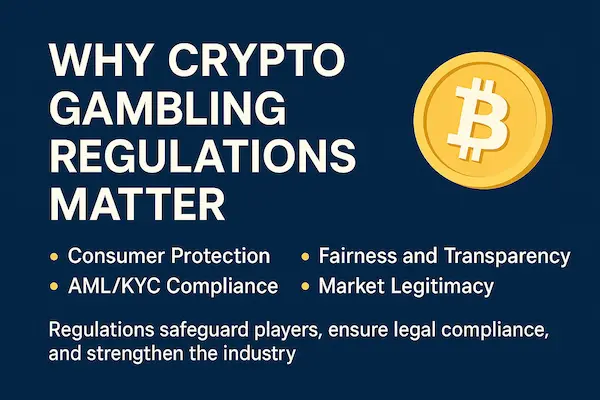
2. Key Regulatory Trends in 2026
As the crypto gambling industry matures, regulations are evolving rapidly to address risks and establish industry standards. By 2026, several regulatory trends have emerged that every operator must pay close attention to. These developments are not just regional policies—they represent a global shift toward greater accountability and transparency in online betting. Understanding these trends is essential for navigating the complex legal landscape and remaining competitive.
1. Global Licensing Shifts
In previous years, many gambling operators relied on offshore licenses from jurisdictions with loose oversight. However, 2026 has introduced a new era of licensing. Countries that were once considered “soft regulators,” such as Curacao, are reforming their frameworks to include crypto-specific guidelines, while stricter jurisdictions like Malta and Gibraltar are expanding licensing requirements to cover blockchain-based betting platforms.
The changes mean that operators can no longer assume one-size-fits-all solutions. An online casino targeting players in Europe may need to comply with both EU-wide directives and local licensing rules. Meanwhile, markets in Asia-Pacific, particularly the Philippines and Japan, are adopting hybrid licensing models that blend traditional gambling laws with crypto-related provisions. For operators, securing a valid license that explicitly acknowledges cryptocurrency usage has become a vital step toward compliance under the latest Crypto Gambling Regulations.
2. Stricter KYC & AML Requirements
One of the strongest global trends in 2026 is the implementation of tighter Know Your Customer (KYC) and Anti-Money Laundering (AML) requirements. In the past, many crypto gambling sites allowed players to deposit and wager anonymously, a feature that appealed to users but raised red flags for regulators. Now, regulatory bodies are mandating more robust identity verification processes to prevent illegal activity.
Operators are expected to collect and verify user documents, monitor transaction patterns, and report suspicious activity in real time. Innovative solutions are also emerging, with some companies integrating blockchain-based KYC systems that improve both efficiency and security. While these stricter measures may create friction for casual users, they also bring legitimacy to the industry and align with the broader objectives of Crypto Gambling Regulations—ensuring fair play and protecting financial systems from abuse.
3. Taxation and Revenue Reporting
Taxation has always been a sensitive issue in the gambling industry, and the introduction of crypto adds an extra layer of complexity. In 2026, governments are clarifying how operators should report revenues generated from cryptocurrency wagers. Some jurisdictions treat digital assets as taxable income at the point of transaction, while others require reporting only when profits are converted into fiat currency.
For operators, the challenge lies in maintaining transparent records across multiple blockchains, wallets, and currencies. Authorities are increasingly requiring operators to integrate automated tax reporting tools that can provide clear, auditable data. Failure to comply may result in heavy fines, or in some cases, suspension of operating licenses. As part of the evolving framework of Crypto Gambling Regulations, tax compliance has become one of the biggest hurdles—but also one of the most critical areas where operators must stay proactive.
4. Responsible Gambling Frameworks
Alongside financial oversight, regulators are also prioritizing player welfare. In 2026, responsible gambling frameworks have been expanded to cover crypto platforms, requiring operators to actively monitor player behavior and provide tools that support healthy gambling habits. These include self-exclusion options, deposit limits, and real-time monitoring systems that flag signs of problem gambling.
Advanced technologies such as AI-driven behavioral analysis are now being employed to detect risky patterns and intervene before problems escalate. Regulators see these measures as essential to maintaining industry credibility, especially since crypto gambling platforms often attract younger, tech-savvy audiences who may be more vulnerable to addiction. By aligning with responsible gambling initiatives, operators not only comply with Crypto Gambling Regulations but also enhance their reputation and long-term sustainability.
Table 2: Compliance Checklist for Operators 2026
| Requirement | Description | Why It Matters Under Crypto Gambling Regulations |
|---|---|---|
| Valid License | Secure crypto-specific licenses in targeted jurisdictions | Legitimacy & market access |
| KYC/AML Procedures | Strong identity checks and blockchain transaction monitoring | Prevents fraud & money laundering |
| Tax Reporting | Transparent, auditable revenue records | Avoids fines and ensures long-term operations |
| Responsible Gambling Measures | Self-exclusion, deposit limits, AI risk detection | Builds trust & reduces regulatory risk |
| Independent Audits | Smart contract & RNG certification by third parties | Boosts transparency & credibility |
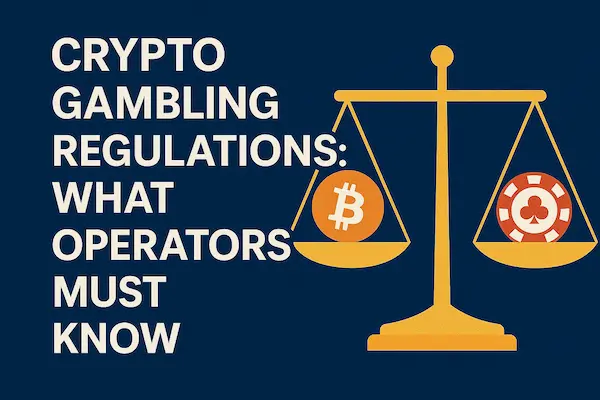
3. Regional Breakdown of Crypto Gambling Regulations
While global trends provide a broad overview, the reality is that regulations differ significantly from one region to another. Each jurisdiction has its own priorities, ranging from financial security to player protection. Understanding these regional differences is essential for any operator aiming to expand internationally in 2026.
1. European Union (EU)
The European Union remains one of the most active regions in shaping Crypto Gambling Regulations. With the introduction of the Markets in Crypto-Assets (MiCA) framework, the EU has created unified rules for handling digital assets, including their use in online casinos and betting platforms. Operators targeting European players now need to comply with both gambling laws and digital asset regulations, which often means stricter licensing, transparent record-keeping, and advanced AML reporting.
Some countries within the EU, such as Malta, are taking a leadership role by offering specialized licenses for crypto gambling. Others, like Germany and France, have stricter requirements, focusing on consumer protection and responsible gambling. For operators, the EU represents both a challenge and an opportunity: while compliance can be costly, achieving a recognized EU license instantly increases credibility and market access.
2. United States
The U.S. continues to have one of the most fragmented gambling landscapes in the world. At the federal level, cryptocurrency gambling remains largely unregulated, but several states are experimenting with frameworks that incorporate blockchain technology into their gambling laws. States like New Jersey and Nevada, already leaders in online betting, are beginning to test pilot programs for crypto-friendly licenses.
However, operators must navigate a maze of rules, as each state sets its own policies. The lack of federal clarity adds uncertainty, but it also leaves room for innovation. Platforms that are able to comply with individual state-level requirements will have a first-mover advantage when broader Crypto Gambling Regulations are eventually standardized across the U.S.
3. Asia-Pacific
Asia-Pacific is one of the fastest-growing regions for crypto gambling, and regulators are responding quickly. Japan and South Korea are actively building compliance frameworks, while the Philippines has become a hub for licensed crypto gambling operators under its Philippine Amusement and Gaming Corporation (PAGCOR). Australia is also tightening its gambling laws, introducing stricter AML requirements for crypto-based operators.
This region represents a massive opportunity due to its large population and high adoption of digital payments. However, it also presents one of the toughest compliance challenges, as many countries are highly conservative about gambling. Operators seeking entry must carefully balance innovation with adherence to strict regulatory expectations.
4. Middle East & Africa
The Middle East and Africa are emerging markets with huge long-term potential. Countries such as the United Arab Emirates are exploring ways to integrate crypto into their broader digital economy strategies, but they remain cautious about gambling. Regulations here are generally conservative, with many nations imposing strict bans on betting activities.
In contrast, certain African countries, such as South Africa and Nigeria, are beginning to experiment with regulated online gambling markets, though crypto-related provisions are still in their early stages. For operators, entering this region requires careful legal due diligence, as compliance with Crypto Gambling Regulations will vary drastically from one country to another.
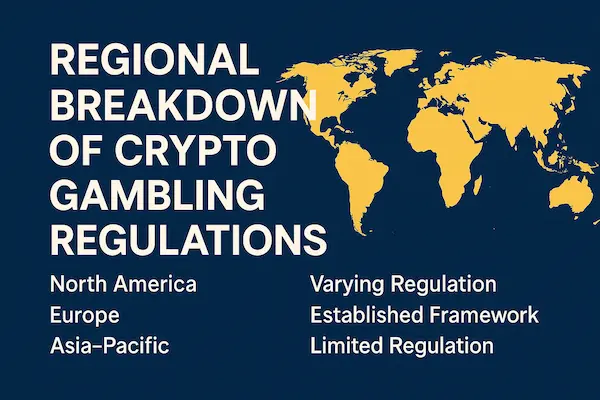
4. Compliance Challenges Operators Face
Even with clearer frameworks, adapting to Crypto Gambling Regulations in 2026 is far from easy. Operators face a complex set of challenges that require both financial investment and technological innovation.
First, there is the issue of multi-jurisdictional compliance. A platform that serves players in Europe, Asia, and North America must simultaneously comply with three very different sets of rules. This requires sophisticated legal teams, strong partnerships with regulators, and often multiple licenses.
Second, implementing robust KYC and AML procedures can be difficult without damaging the user experience. Players are drawn to crypto gambling for its speed and anonymity, yet regulators demand identity verification and transaction monitoring. Striking the right balance is one of the biggest hurdles for operators.
Third, tax compliance adds another layer of complexity. With revenues flowing in multiple cryptocurrencies across different jurisdictions, tracking and reporting taxable income accurately is a major challenge. Operators must invest in advanced accounting systems capable of integrating blockchain data with traditional financial reporting.
Finally, operators face the ongoing challenge of technology and security. As regulations demand higher transparency, platforms must ensure their smart contracts, wallets, and payment gateways are regularly audited. A single security breach or compliance failure can not only lead to heavy fines but also permanently damage reputation in a competitive market.
In short, while Crypto Gambling Regulations are designed to bring legitimacy to the industry, they also raise the bar for compliance. Only operators that invest in strong systems, expert guidance, and long-term strategies will be able to meet these challenges and remain profitable in 2026.
5. Opportunities for Compliant Operators
For many businesses, stricter Crypto Gambling Regulations may look like a challenge, but in reality they open valuable opportunities. Platforms that follow official rules quickly earn trust from players, who are more confident in depositing funds and playing on licensed sites. This trust also extends to investors and payment partners, who prefer to engage with regulated operators rather than risk exposure to unlicensed platforms.
Another benefit is market access. As more regions adopt frameworks for crypto betting, governments often give priority to operators with proven compliance records. This means a licensed business in the EU or Japan, for example, has a stronger chance to expand into neighboring countries. Over time, compliance becomes not just a legal requirement but also a competitive advantage.
Finally, regulation builds long-term stability. The gambling industry is known for platforms that rise quickly but fail due to legal or reputational issues. By following Crypto Gambling Regulations, operators create a sustainable foundation that protects them against sudden shutdowns or legal disputes, allowing steady growth in a highly competitive market.
6. How Operators Can Stay Ahead
Keeping up with Crypto Gambling Regulations in 2026 requires planning, investment, and a proactive mindset. The first step is building a dedicated compliance team that understands both gambling law and crypto-specific rules. These professionals can monitor regulatory updates, prepare audits, and guide the business through complex multi-jurisdictional requirements.
Technology is another essential tool. RegTech solutions now allow instant KYC checks, automated AML monitoring, and blockchain-based reporting. By integrating these systems, operators can remain compliant without slowing down the user experience, which is crucial for keeping players engaged.
Collaboration also plays a key role. Partnering with licensed crypto payment gateways, independent auditors, and responsible gambling organizations helps operators strengthen credibility. Such partnerships not only satisfy regulatory demands but also reassure players and partners that the platform operates transparently.
Above all, operators must adopt a culture of continuous adaptation. Regulations are changing fast, and what works today may be outdated within a year. Businesses that remain flexible, update their systems regularly, and treat compliance as an ongoing commitment will be best positioned to lead the future of crypto gambling.

FAQs on Crypto Gambling Regulations 2026
1. What are Crypto Gambling Regulations?
Crypto Gambling Regulations are legal frameworks that govern how online casinos and betting platforms use cryptocurrencies, focusing on licensing, KYC, AML, and responsible gambling.
2. Why are Crypto Gambling Regulations important in 2026?
They bring legitimacy to the industry, protect players, prevent fraud, and help operators gain trust from investors and partners.
3. Which regions have the strictest Crypto Gambling Regulations?
The European Union and countries like Japan now enforce strong compliance standards, while the U.S. has state-level pilot programs.
4. How do Crypto Gambling Regulations affect operators?
Operators must secure licenses, implement KYC/AML tools, report taxes transparently, and adopt responsible gambling measures to remain compliant.
5. Do players benefit from Crypto Gambling Regulations?
Yes, players gain more safety, fair play, and confidence that their funds are protected when gambling on licensed platforms.
6. How are taxes handled under Crypto Gambling Regulations?
Most jurisdictions require clear reporting of crypto revenues, often demanding automated systems to track and declare profits.
7. What are the main compliance challenges for operators?
Multi-jurisdictional rules, stricter KYC processes, transparent tax reporting, and ongoing technology audits are the biggest hurdles.
8. How can operators stay ahead of changing Crypto Gambling Regulations?
By hiring compliance experts, adopting RegTech solutions, partnering with licensed payment gateways, and updating systems regularly.
Final Insights: Crypto Gambling Regulations and the Road Ahead
By 2026, Crypto Gambling Regulations are no longer just fragmented policies—they have become a decisive force shaping the global iGaming sector. Governments and regulators are actively seeking to strike a balance between innovation and control. This creates both challenges and opportunities: while compliance can be resource-intensive, it also offers legitimacy, investor trust, and long-term market access.
The news cycle around cryptocurrency and online gambling remains fast-moving. Headlines about fraud cases, AML crackdowns, or new licensing rules are appearing almost weekly. For operators, this means the ability to adapt quickly to regulatory updates is now a core business skill. Platforms that remain agile, transparent, and responsible will not only survive but thrive in this regulated era.
Looking ahead, the future of crypto gambling will likely be defined by three pillars: trust, technology, and transparency. Operators that invest early in compliance systems and player protection measures are positioning themselves to dominate the next decade of online gambling.
Quick Summary Table
| Key Area | 2026 Reality | Operator Action Required |
|---|---|---|
| Licensing | Stricter, crypto-specific licenses introduced globally | Apply early for jurisdictional recognition |
| KYC/AML | Mandatory ID verification, blockchain monitoring | Integrate RegTech & automated compliance tools |
| Taxation | Transparent reporting demanded across jurisdictions | Use automated tax & audit-ready systems |
| Responsible Gambling | Player protection now legally required | Adopt AI-driven risk monitoring & self-exclusion |
| Market Expansion | New regions open only to compliant operators | Build credibility through regulation alignment |
Operators that want to lead the market cannot afford to wait. The stricter Crypto Gambling Regulations of 2026 demand immediate action—secure the right licenses, integrate robust KYC/AML systems, and strengthen responsible gambling frameworks before competitors get ahead.
Don’t get left behind. Stay updated, stay compliant, and build a trusted platform that players, investors, and regulators recognize as a leader in the future of crypto gambling.
For daily updates, subscribe to XAIGATE’s blog!
We may also be found on GitHub, and X (@mxaigate)! Follow us!
Want to simplify your gateway integration?
Discover how XaiGate helps operators meet 2026’s Crypto Gambling Regulations seamlessly: Crypto Payment Gateway for Online Casino.

